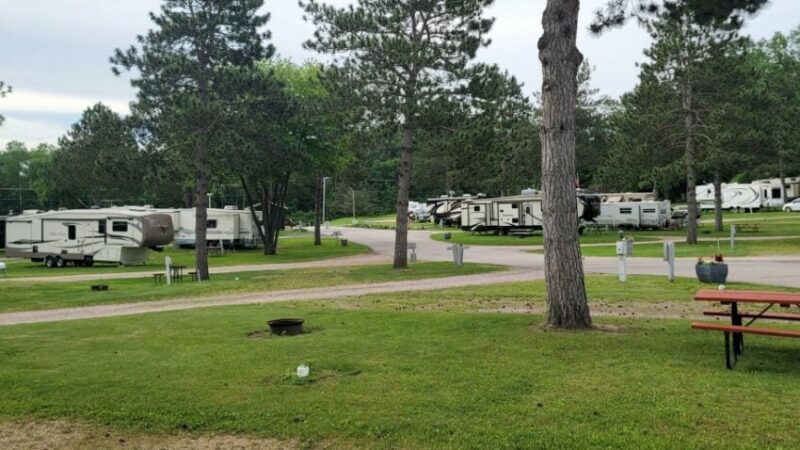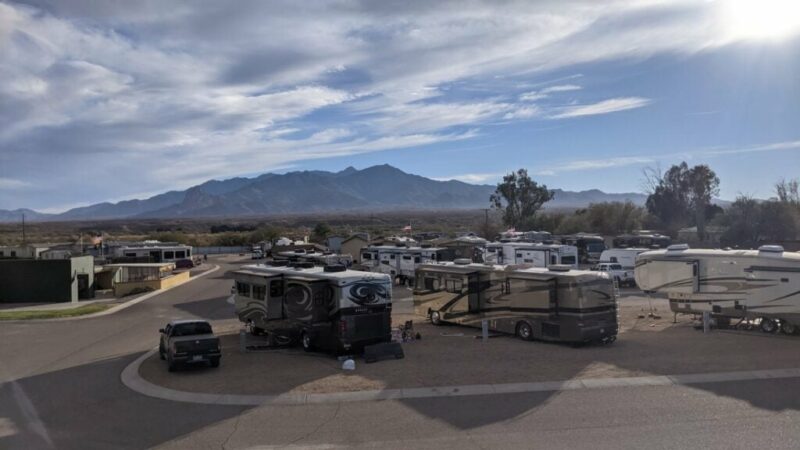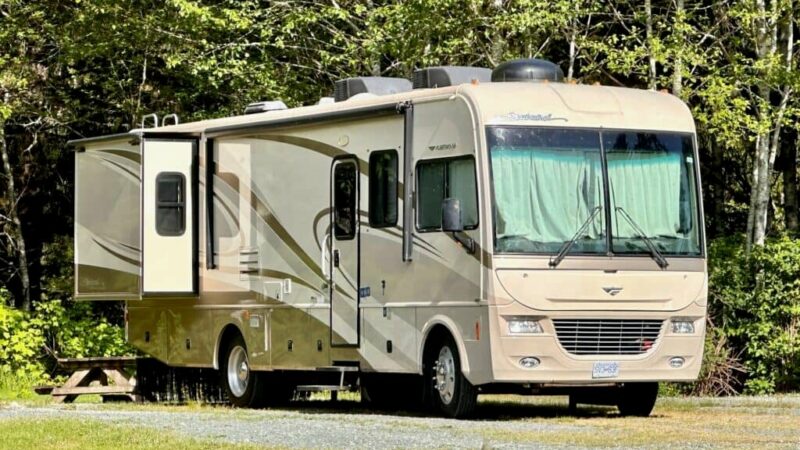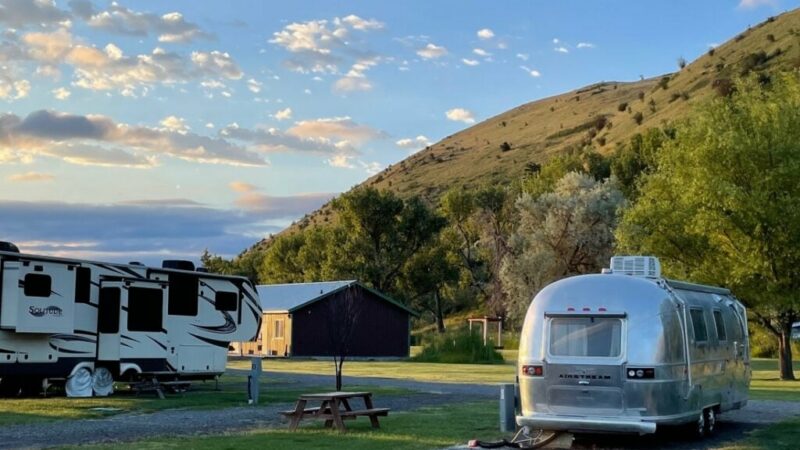Is It Illegal To Live In An RV In A Backyard?
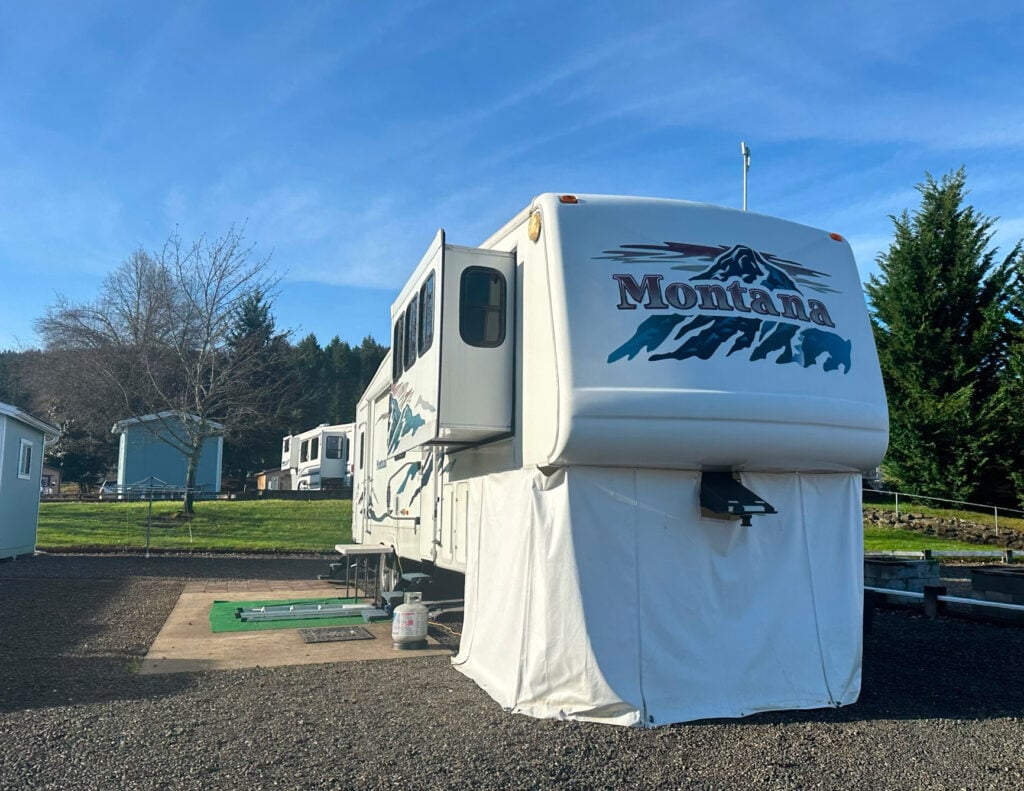
Can You Legally Live In An RV On Your Own Private Property?
Most RVs provide everything we need to be comfortable. They’re miniature homes on wheels, and many people want to live in their vehicles all year round. We’re all familiar with people who travel throughout the year or stay in campgrounds and resorts. But what about those who want to live in an RV in their backyard?
This is a complicated question, and the answers vary based on where you live. If you own the land where you want to park, you’ll have more freedom to do so. However, there are often city ordinances and neighborhood rules that prevent you from pursuing this lifestyle.
If you want to stay in an RV in a backyard, you’ll need to jump through a few hoops. These vehicles don’t always qualify as residences, so you’ll need to do everything you can to legitimize your setup. This might include arranging utilities and paying taxes to the state where you live. We’ll cover the ins and outs of this issue below.
Living on your own land
Lots of RVs are nice, so people want to stay in them as much as possible. If you own land, you won’t have to constantly travel around and pay daily campground fees. In addition, some people choose to live in an RV while they build a new home for themselves. It enables them to use their land throughout the construction process.
Although there are perks to living on your own land, the legality of this practice is a bit of a gray area. Therefore, you’ll need to perform plenty of research before you commit to this lifestyle.
For starters, check the zoning laws for your city/county. Some cities have an issue with full-time RV parking because they feel like the land should be used for permanent buildings. In other cases, your neighborhood HOA might cause a scene.
Some people do not want to share their neighborhood with RVs because they fear it will lower the value of their homes. There may be zoning restrictions and rules you need to follow, so read the fine print before you buy land.
If you have questions during this process, you can always contact a zoning employee at your county office. They should be able to give you full details about where you can park your RV.
Living on someone else’s land
Buying property is expensive, and many people don’t see the point in owning land if they just want to park their RV there. That’s why it’s a fairly common practice to park in someone else’s backyard.
The rules mentioned above still apply because you won’t always be allowed to keep an RV in plain sight. Check the city and county rules to make sure you’re not breaking any laws.
Next up, you need to find someone who is willing to let you stay on their property. Many people stay with family members or friends. The RV gives them a sense of privacy, plus they can use the outdoor space that others might ignore.
You might be asked to chip in on mortgage payments or rent in order to stay, but you can work this arrangement out on a case-by-case basis.
In some cases, you can also find people online who are willing to let you stay in their yards. You can create your own ad or look for other people who are offering a deal. Again, payment will probably be part of the deal, but you can park your RV for long stretches of time.
Just be careful if you choose this route. Some arrangements are dangerous, so you need to be careful when you determine where you want to go.
Am I homeless if I live in an RV?
Many people wonder if they are technically homeless if they live out of an RV. The answer to this question depends on where you park and what type of amenities your RV has.
There are a few qualifications you need to meet if you want your RV to act as a full-time home. It needs to have running water, a bathroom, some type of kitchen, and a place to sleep. Most RVs meet these standards, but there are some models that are too small to fit these necessities.
One of the biggest factors in this question is where you park. If you always keep your RV in parking lots or park it on the street overnight, you would technically be considered homeless. People who sleep in their cars fall under this category too. You don’t have access to permanent utilities in these areas and don’t have an official address either.
However, if you park on property that you own or rent, your RV could be considered a full-time residence. You’ll need to fill out some paperwork, as well as connect it to water, sewage, and electrical hookups. It’s a good idea to use your community’s trash pickup as well.
How to make your RV a permanent residence
If you’ve decided you want to live in an RV for the foreseeable future, you’ll need to take care of a few technicalities. Once you confirm that you can live in a specific area, you can work on making your vehicle a permanent residence.
First off, obtain any necessary permits. Some permits allow you to park your RV for 28 days every year, but this won’t cut it for full-time living. Visit your county office to obtain the proper forms. You may need to comply with land inspections as well, so buckle in for a long approval process.
Next, make sure you have access to all necessary utilities. You won’t be able to rely on the water tanks and battery forever! If your RV stays in one place, you need to have running water, electricity, sewage, internet, and more. Your sewage options might include connecting to the city’s system or setting up a septic tank.
Now it’s time to change or establish a permanent address. If you own the land where you’re staying, this is a fairly standard process. Gather documentation that proves that you own the land and visit your county or city office. There, you can apply for a new address and fill out the appropriate paperwork. You’ll need to pay a fee as well.
Once you have your new address, you will be able to receive mail, prove residency, and so much more. It’s a sign of legitimacy.
Is it worth it?
Choosing to live in an RV is a highly personal decision. Some people do it to save money, while others do it for a sense of stability. No matter what your reasons are, rest assured that it is possible in most locations.
Unfortunately, you’ll need to deal with a lot of paperwork in order to receive approval. You might run into issues with your neighbors and HOA as well. If you live with friends or family members, this lifestyle could also strain your relationships.
In the end, you’re the only one who can decide if the pros outweigh the cons. Just remember to check in with your city representatives every step of the way! You don’t want to get caught doing something illegal or be forced to pay heavy fines.
Find more places to park your RV
For all of your camping and trip planning needs, look no further than RV LIFE Campgrounds and RV LIFE Trip Wizard. Campground Reviews is a trusted source of campground and RV park reviews offered by camping and RV enthusiasts just like you. With its accompanying RV LIFE App, RV Trip Wizard gets you to your camping destinations utilizing RV-friendly routes specific to your RV and travel preferences.
Been to a campground lately? Don’t forget to leave a review! Reviews help other RVers like yourself, and they help the campground. Leave a campground review today!
Related articles:
- Is Full-Time RV Living Illegal?
- Potentially Dangerous Mistakes You Can Make As A New RVer
- Where Can I Store My RV For Free?
The post Is It Illegal To Live In An RV In A Backyard? appeared first on RV LIFE.



